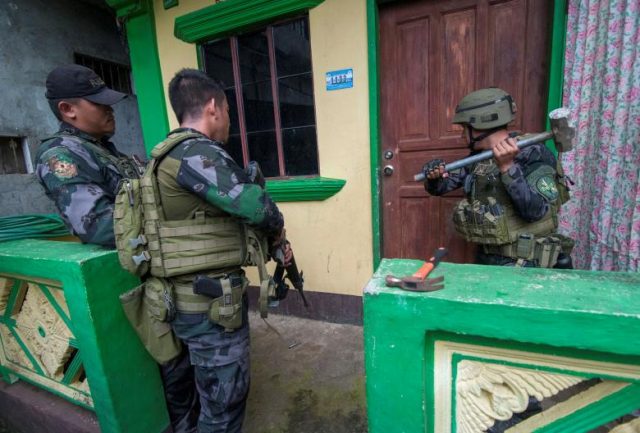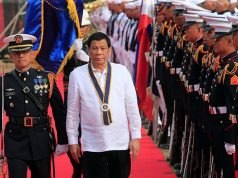
MANILA, Philippines — The military could not commit to retaking Marawi City from extremist gunmen who have been battling government forces by the time President Rodrigo Duterte delivers his second state of the nation address later this month.
“Sinisikap nating tapusin ito sa lalong madaling panahon dahil hindi magandang magtagal ang ganitong uri ng labanan (We are trying to finish this as soon as we can because it is not good to prolong this kind of fighting),” Armed Forces of the Philippines spokesman Brigadier General Restituto Padilla told a briefing in Malacañang Wednesday.
At the same time, even as he appealed to people for patience, Padilla also dared them, “Mas maganda kung mag-volunteer kayo na magsundalo (It would be better if you volunteered to become soldiers).”
At the start of the hostilities on May 23 , most security officials and even President Rodrigo Duterte, who nevertheless declared Mindanao under martial law soon after fighting broke out, predicted the crisis would be over within days.
However, deadline after deadline passed with the fighting only becoming more fierce and the military increasingly resorting to air strikes as the death toll mounted that, by Independence Day, June 12, officials stopped predicting when the crisis would end.
Interestingly enough, Duterte, speaking at a dinner in Malacañang he hosted Tuesday evening to mark Eid’l Fitr, claimed he knew the details of the Maute group’s plans and that it would be a long fight as early as his signing of the martial law declaration in Moscow, where he had to cut short his official visit and rush back.
Explaining the difficulty of battling the extremists in Marawi, Padilla noted that there were still civilians, either trapped or held hostage, and clearing the tall buildings in the city center where the gunmen appear to be concentrated, was a slow and dangerous process because of booby traps and other devices reportedly laid for government troops.









